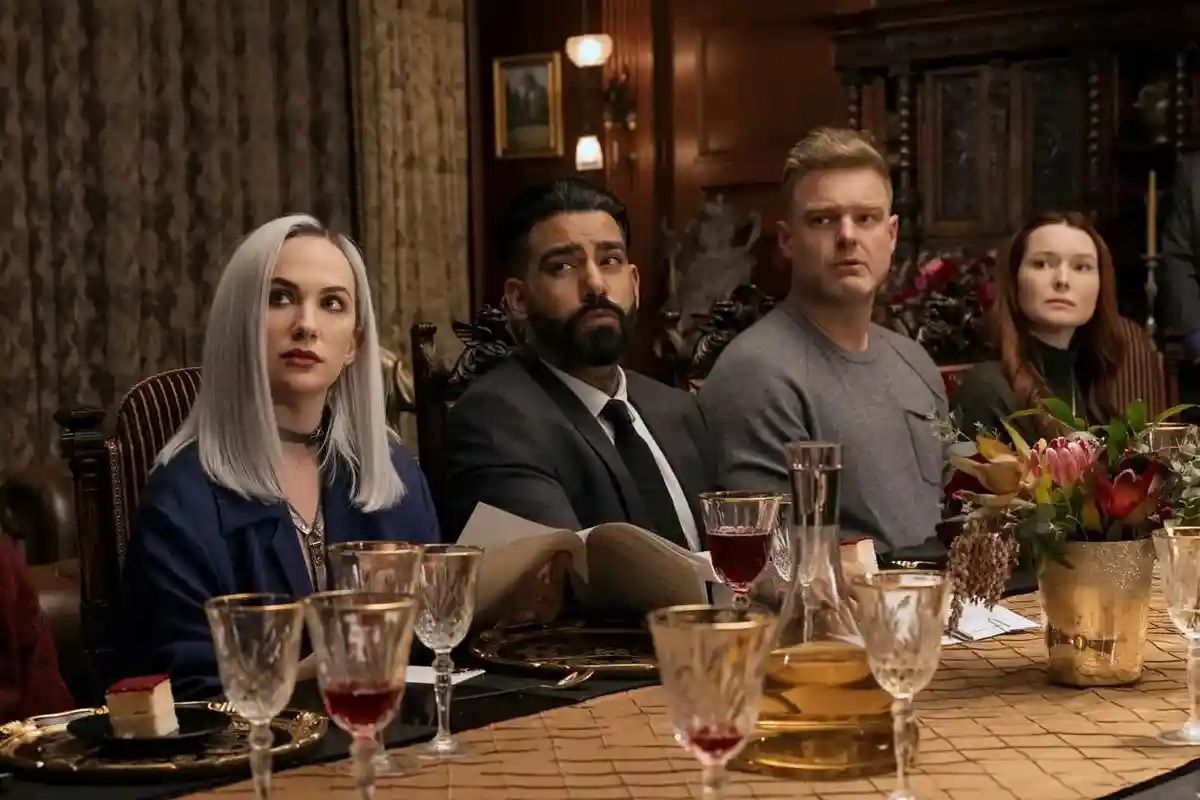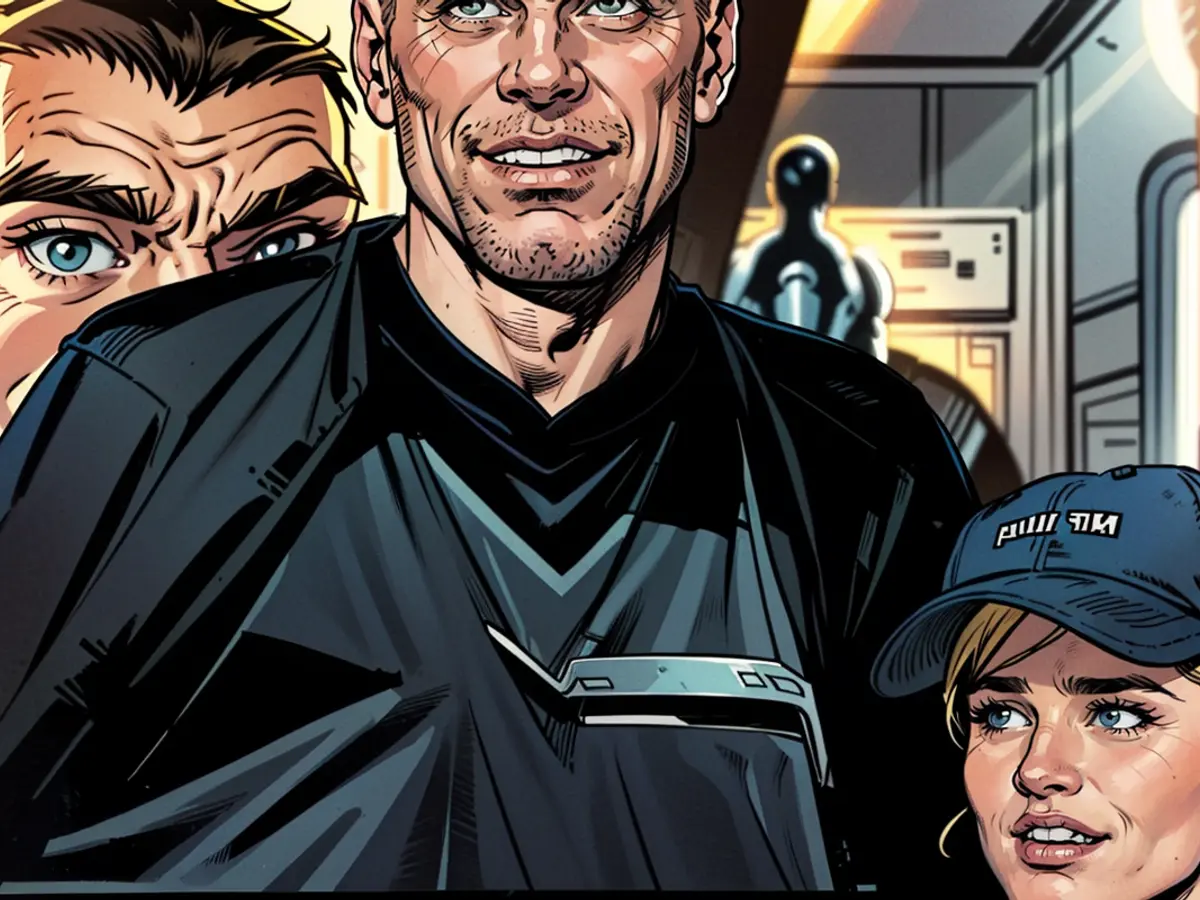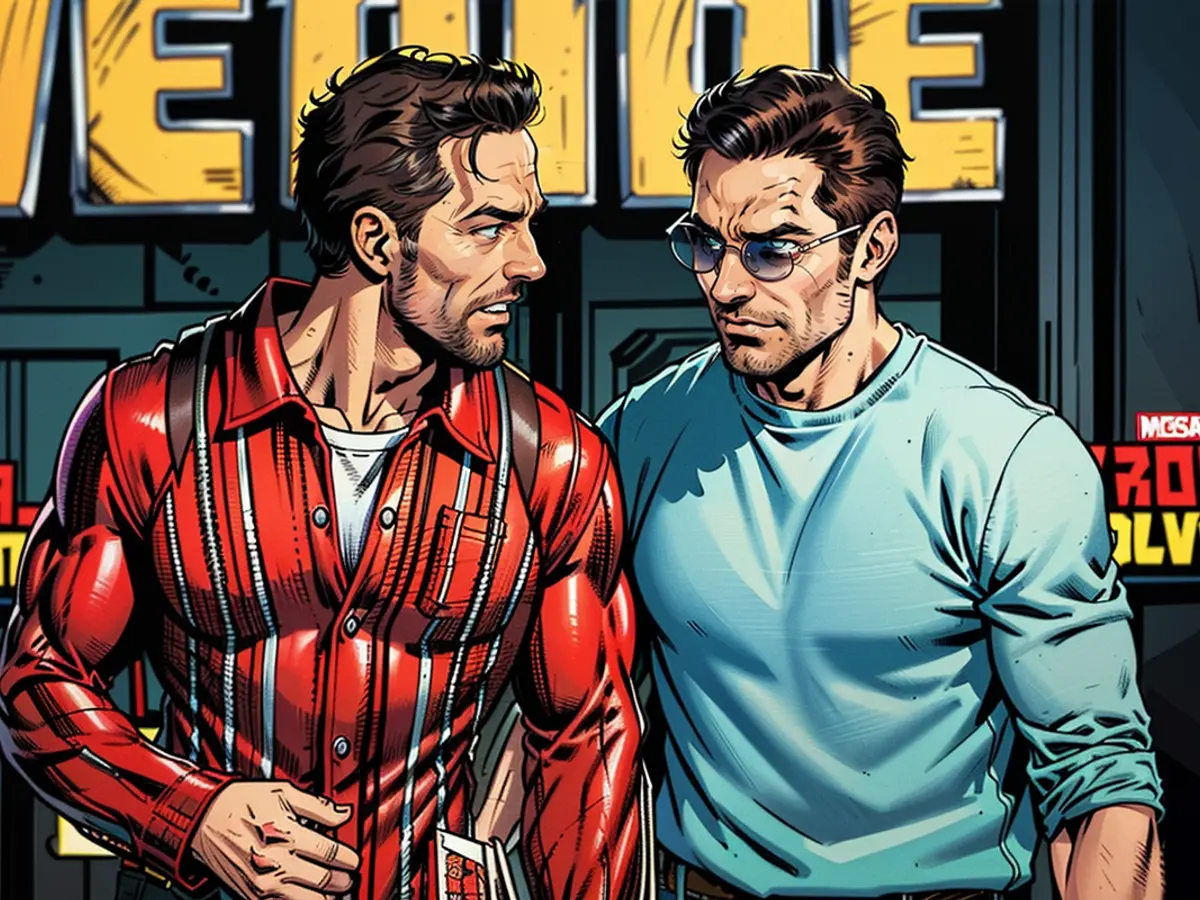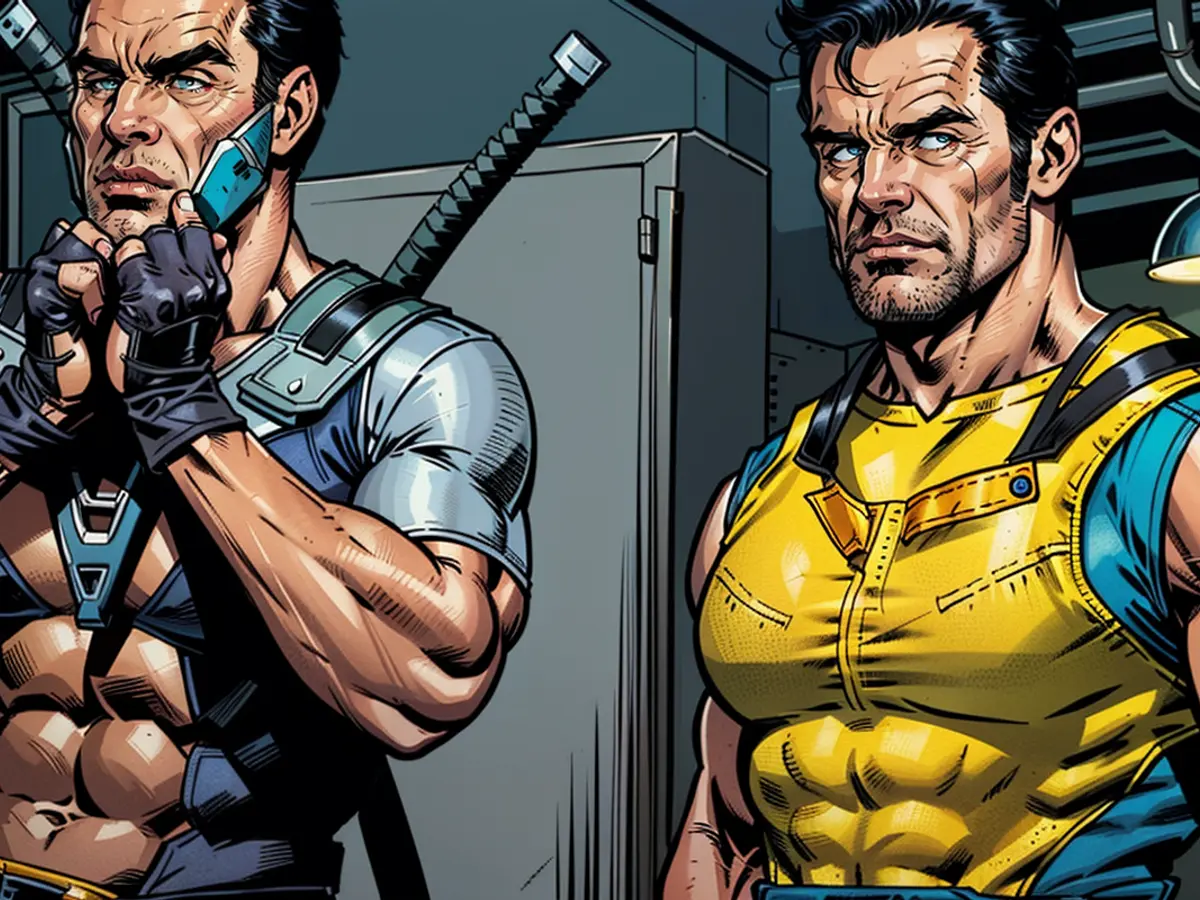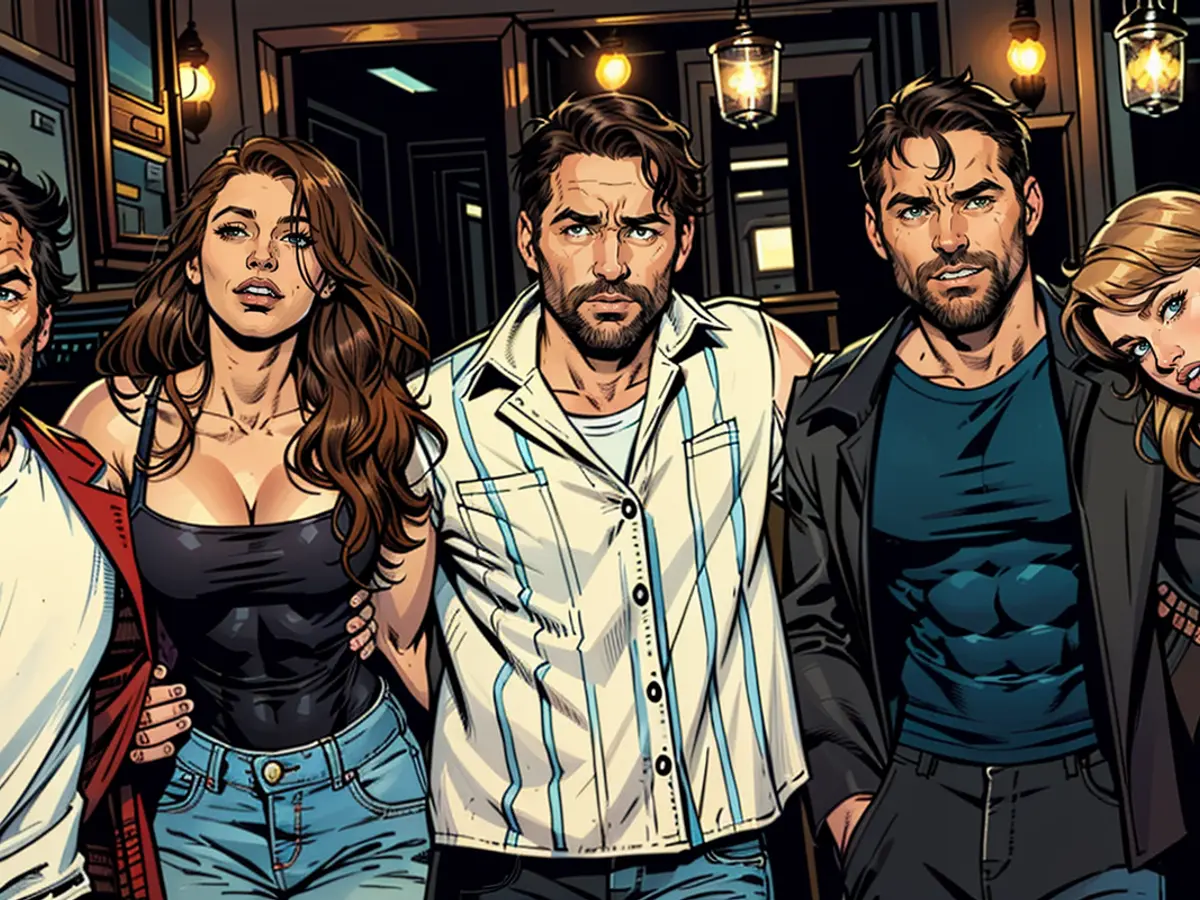The show has been in the top 10 for several weeks now, and the number of hours viewers have spent watching it is approaching streaming hits.
Related topic: Preparing for Christmas: two movies ideal for family watching
'The Fall of the House Usher' — Edgar Poe in a new way
An important indicator is the completion rate—few people abandon this dark, mesmerizing story halfway through.
The chronicle of different facets of vice, flaws proudly carried by family members and their associates, leaves no chance to tear away from the screen. What is the attractiveness of this story?
Why is it called one of the most successful adaptations of Edgar Allan Poe?
About the creators
Not that the production of shows in the modern world is on an assembly line (a light sarcasm), but competition doesn't allow market players to relax.
The creators of 'The Fall' Mike Flanagan and Trevor Macy, are finishing their contract with Netflix with this show and "moving" to Amazon. In an era when online platforms hunt for talents and sign contracts for multiple products at once, this is an important move. Recognized masters of "horror" for the short meter are able to attract and retain the audience on the screens.
And they do it wholeheartedly. Although Flanagan and Macy had a "fat" Netflix contract in their pocket, and now Amazon, they did not do their job half-heartedly. The creative duo has produced several series that have become iconic and even cult. "The Midnight Club," "The Midnight Mass," and "The Ghosts of Bly Manor" will remain in the memory of viewers as excellent examples of captivating and tense stories.
Whose soul the raven croaks for
The story is essentially shown from the end.
Roderick Usher (Bruce Greenwood), the patriarch of the family, invites Auguste Dupin (Carl Lumbly), a federal prosecutor, to a meeting. An unusual place—the old house of Usher's mother, and the time—deep midnight. Dupin and Usher have long been at odds with each other—the prosecutor wants to hold the wealthy man accountable.
What is he guilty of?
Let's say it right away and close the topic—Roderick Usher is a very, very bad person. The opioid epidemic in the USA is such a acute topic that there have been many statements on this subject in recent years. We wrote about "Side Effect: Death" and "Crack," and there are many more movies, shows, and documentaries on the issue. What is more important—human life or the interests of greedy capitalists?
Not just an exploration of the "who's guilty?" problem.
The culprit is pointed out immediately, in the first episode, and it is immediately revealed— all his children died one after another in a couple of weeks. It's like "Succession" (another hit, but on HBO) on the way out in a gothic setting of Edgar Allan Poe's stories.
Back to the plot.
Roderick, along with his twin sister Madeline Usher (Mary McDonnell), eventually takes over Fortunato Pharmaceuticals and turns it into a corporation that brings colossal profits. In the last episode, Madeline will be breathless, like a madwoman, convincing herself and her brother that they wanted to rid the world of pain. Supposedly, small opioid pills bring only joy and happiness to the fatally ill, and drug addicts are to blame themselves. But knowing how the sale of drugs was organized, you don't believe a single word she says.
By the way, take a look at her— throughout the show, it is still unclear who managed the company more, but it is immediately clear who is more cold-blooded.
Actually, Auguste Dupin gives impetus to the events of the series. And their meeting with Usher is a sad outcome and confession (repentance?) of a businessman.
In the first episode, essentially a prologue, Dupin once again loses to Usher's lawyer, Arthur Pym (Mark Hamill), in court. Over and over again, cases against Fortunato fall apart, witnesses contradict themselves, simply disappear, evidence disappears. Dupin declares that one of the family members will testify. Usher gathers everyone for dinner on the same day and offers a huge reward for catching the traitor.
What's on the table
Around the luxurious table that evening are his last wife and six children from different women, including illegitimate ones. It is quite a motley company both externally and in hobbies, and, importantly, in vices. Having risen from poverty, not knowing a father's love, raised by a religious mother, Usher vowed to give everything to his children. He promised that any of his offspring would be accepted by him. He kept his word.
Each of them is unloved but lacks nothing. Each of them hates their father and wants to be his best child. And they strive to earn this love in any way. No, this is not a story of sibling murder and deadly strife. Brothers and sisters will try to find out who wants to "betray" the company. But they will quickly get bored of it; they will turn their gaze back on themselves, thinking about how to manifest themselves to prove their worthiness to their father.
Six Episodes
After the prologue, we have six episodes—each tells the story of one of Roderick's children.
At the end of each episode, they die (and this is not a spoiler!). Children of Usher of different ages and genders are portrayed by:
- Henry Thomas;
- Kate Siegel;
- Samantha Sloyan;
- T’Nia Miller;
- Sauriyan Sapkota;
- Rahul Kohli.
Each has its own color scheme and style, with beautiful, meticulously crafted interiors filled with meaningful details. Each of them dies in a unique way, sometimes too bloody, but it is always covered at the last moment by some object and lasts a fraction of a second.
I highly recommend making tv shows with your best friends. #TheFallOfTheHouseOfUsher
— Kate Siegel (@k8siegel) November 12, 2023
Part 1 pic.twitter.com/JlDbS6jy8D
But the viewer knows that the character is doomed and also knows why they must die. Not a single (almost) offspring of Roderick is pitiable for a second. They trap themselves in a trap of their own minds, the way out of which will be deadly in any case. Dying one after another, realizing that it cannot be a coincidence, the survivors show remarkable callousness, not even attempting to momentarily temper their ambitions and end the race for paternal approval.
Resolution
The most unpleasant thing in this mini-series would be the open ending and a subtle hint at what the character of Flanagan's "favorite" actress Carla Gugino represents. She first appears as a shadow on the stage, then more confidently, changing faces from episode to episode. She comes to each of Usher's children and gives them what they seek, pushing them towards a sad resolution. Gugino magically attracts more and more attention to herself until, in the final eighth episode, she appears to the slightly deranged father in full glory.
Roderick Usher does not repent, but he probably wouldn't have acted differently; he remains silent and waits to see how his own story will end. At this moment, the time comes when the series could have gracefully concluded. Then this monumental collection of Edgar Allan Poe's stories would have achieved complete perfection. Genre enthusiasts could return to it, examining the details.
In reality, it is difficult to notice the embedded figures of the writer's life and death, to see more subtle references behind the frontal black ravens and nevermores, legends. It includes the anagram of the bar owner's name, ancient stained glass windows, and other meaningful details.
But the heroine rises above the abyss into which Usher is thrown, and, pointing her finger at him, she spends 20 minutes eloquently telling him how wrong he was. How he was mistaken, how many lives he ruined, and overall, what a bad person he was. But Usher doesn't care anymore. This is not done for the plot but for the viewer, to make sure they understand who the monster is.
Verdict
Definitely worth watching, especially in the fall, but turn it off 20 minutes before the end.
Related topics:
The cinematic adaptation of "The Fall of the House Usher" has been critically acclaimed, with viewers completing the dark and mesmerizing story in high numbers.
Fans of horror genre enthusiasts will appreciate the work of creators Mike Flanagan and Trevor Macy, who have produced iconic and cult-classic series like "The Midnight Club", "The Midnight Mass", and "The Ghosts of Bly Manor".
[Cinema] is an excellent platform for showcasing thought-provoking and captivating stories, and this adaptation of Poe's work is no exception.
